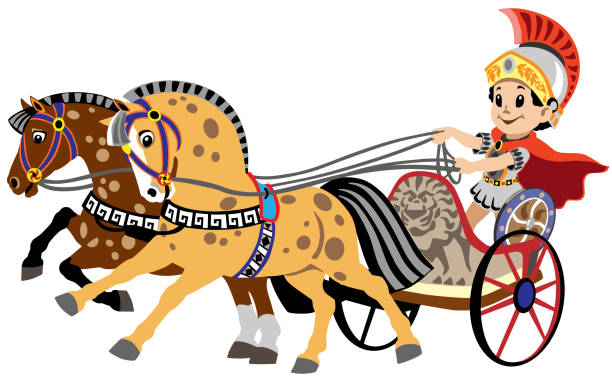Adoptionists
Sounds like someone who might take a child into care, doesn’t it? Not so. Adoptionists, apparently, unlike our friend Marcion, believed that Jesus did have a human body, but not that he had been divine prior to this. The whole idea of adoptionism (religious arguments send Homer to sleep) seems to hinge on the idea that God chose a human to carry out his will on Earth and then after that human (Jesus) had died, having fulfilled his will, adopted him as his son and thereby raised him to the status of divinity. This theme is in accordance with the Gospel of Mark, in which there is no mention of Jesus’s immaculate conception and birth, nor any appearance by Jesus after he dies.

Paul doesn’t have any reference to the virgin birth either in any of his epistles, nor did our friend Hermas in The Shepherd, who simply calls Jesus a “virtuous man filled with the Holy Spirit and adopted as the Son”. There must also have been links with Gnosticism, as Theodotus of Byzantium, a prominent Valentinian, believed that while Jesus had been born of a virgin, and that “the Christ” had come down to him when he had been baptised by John the Baptist, he only “became” God after his death. More support for this idea came from the Ebionites, an early Jewish Christian sect, who held that although Jesus was the Messiah, he had not been born of a virgin and he was not in fact divine, just a holy man. They didn’t much care for Paul either, these Ebionites, calling him an apostate. That’s someone who turns against his own religion, basically, though it’s more complicated than that.
Even the hyper-Catholic Spanish were at it, though admittedly they came late to the party. In the 8th century Bishop Elephant Panda, sorry Elipandus of Toledo preached that Jesus was only the adopted son of God, and another bishop, Felix Unger, sorry Felix of Ungel, agreed. The Church, unsurprisingly, did not, and both men were excommunicated.
Apollonarists
This one didn’t last long. Came into being near the end of the fourth century and was gone by the time the fifth began. Apollonarists believed that Jesus was a game of two halves, having a human body and soul but a divine mind.
Arabici
These didn’t last long either. A small sect, they believed the soul died with the body, but would be resurrected on Judgement Day. By 250 though they had seen the error of their ways and were welcomed back into the Church with open arms.

Arianists
Although this sect was called Arianism, and despite the temptation to, it’s not linked or connected in any way with the Aryan ideal espoused by Hitler and other racial thinkers. Arians did not believe in the Holy Trinity, holding that Jesus was subordinate to his father and came into being later, and so could not be seen to be eternal and divine, as he would then have a beginning, which God did not. Abilene Christian University’s Everett Ferguson noted “The great majority of Christians had no clear views about the nature of the Trinity and they did not understand what was at stake in the issues that surrounded it.” No shit. I never did understand it, and I never will. Three beings who are one but yet separate? And still one can separate off and head down to Earth to live as a man without diminishing the whole left behind? Get away from me with that shamrock! What’s that supposed to prove?
This sect did markedly better than the others, numbering bishops, priests, even kings and emperors among its adherents. Constantine the Great, the man responsible for the legitimisation and acceptance of Christianity from the fourth century onwards, wasn’t having it. “In addition”,he wrote in 325, “if any writing composed by Arius should be found, it should be handed over to the flames, so that not only will the wickedness of his teaching be obliterated, but nothing will be left even to remind anyone of him. And I hereby make a public order, that if someone should be discovered to have hidden a writing composed by Arius, and not to have immediately brought it forward and destroyed it by fire, his penalty shall be death. As soon as he is discovered in this offence, he shall be submitted for capital punishment. …”
Despite this stark warning, Arianism spread after Constantine’s death, extending to Spain, where it persisted till the late sixth century, and even into North Africa. Arius himself tried to lay out his case in a letter to Eusebius of Nicodemia, who had actually baptised the emperor Constantine: “Some of them say that the Son is an eructation, others that he is a production, others that he is also unbegotten. These are impieties to which we cannot listen, even though the heretics threaten us with a thousand deaths. But we say and believe and have taught, and do teach, that the Son is not unbegotten, nor in any way part of the unbegotten; and that he does not derive his subsistence from any matter; but that by his own will and counsel he has subsisted before time and before ages as perfect as God, only begotten and unchangeable, and that before he was begotten, or created, or purposed, or established, he was not. For he was not unbegotten. We are persecuted because we say that the Son has a beginning but that God is without beginning.”

A subtext you can read here in modern parlance is a spreading of the hands and “Come on guys! It’s fucking obvious isn’t it? Why fight against it?” It’s also amusing - though not in any way surprising - that Arian, seen as a heretic by the Church, describes its followers as heretics. All in the eye, or belief, of the beholder, I guess. Much of the reason for the lenient stance later taken by the Church towards Arianists was due to the ascension of Constantine’s son, Constantius II, who reversed his father’s edict and welcomed Arianists into the Church. The new emperor even went so far as to dismiss the Pope and install what is known to history as an Anti-Pope, Felix the Cat, sorry Felix II. The Cat. No, seriously. Nobody would make a cat a pope. Well, maybe Caligula…
His efforts culminated in the Seventh Arian Confession (later called the Sirmium Blasphemy) at the Third Council of Sirmium in 357, which stated that “since many persons are disturbed by questions concerning what is called in Latin substantia, but in Greek ousia, that is, to make it understood more exactly, as to ‘coessential,’ or what is called, ‘like-in-essence,’ there ought to be no mention of any of these at all, nor exposition of them in the Church, for this reason and for this consideration, that in divine Scripture nothing is written about them, and that they are above men’s knowledge and above men’s understanding”.
So that was that, then. Well of course not. Once Constantinus II kicked it, the next emperor was no fan of Chrisianity. “Fuck all these differences you mad dudes have,” he is reported most definitely not to have said, “I’m off back to our own gods. At least you know where you are with Jupiter. Offend him - thunderbolts! BAM! No wishy-washy is-he-isn’t-he-divine shite. Enjoy your false god, Christian dudes. You’re not illegal, but you’re not the official game in town any more. Now where’s my chariot? I could have sworn I parked it - hey! You! Come back with that!”

So now Christians, demoted to a tolerated but not dominant religion, were left to thrash it out for themselves. Rome no longer cared. “Let them belt seven shades of shite out of each other,” unreliable sources quote Emperor Julian as saying. “Why aren’t these grapes peeled? Off to the crucifixions with you! Can’t get the staff these days.” Valen, sorry Valens succeeded Julian, and went back to favouring the One God, and indeed the Arian idea of One God, until he was killed by the Goths (probably because he said Robert Smith couldn’t sing or something) and replaced by the nineteen-year-old Gratians, but he was too young and had to co-rule with Theodosius, and together they put paid to Arianism forever.
At least, it did among the Romans. But the Goths didn’t give a fetid pair of dingo’s kidneys what the Romans worshipped or believed in. For them, it was Arianism or nothing. Jesus was subordinate to God, had been for centuries of their faith, and that was just how they liked it. However it did begin to lose ground around the fifth century, most notably under Clovis I, the legendary first King of the Franks, and by the eighth it was gone altogether.
Collyridians
This one is good. A sect made up entirely of women, the very existence of which is disputed by some scholars. They worshipped the Virgin Mary as a goddess (the sect, not the scholars) and offered her tributes. They seem to have been confined - if they existed at all - to Arabia. They did not, however, unlike some later adherents to Islam, believe Mary to be part of the Divine Trinity. To quote the great theologian and philosopher, Montius Pythonus, that would just have been silly.

Docetists
They believed that the human form of Jesus was an illusion. Well, if it was, how come he couldn’t disappear off the cross when they - sorry, sorry. I’ll let Wiki explain this one: Two varieties were widely known. In one version, as in Marcionism, Christ was so divine that he could not have been human, since God lacked a material body, which therefore could not physically suffer. Jesus only appeared to be a flesh-and-blood man; his body was a phantasm. Other groups who were accused of docetism held that Jesus was a man in the flesh, but Christ was a separate entity who entered Jesus’ body in the form of a dove at his baptism, empowered him to perform miracles, and abandoned him upon his death on the cross.
This meant that Docetists did not take Communion, as thundered by Ignateus of Antioch in his letter to the Smurfs sorry Smyrnaeans: “They abstain from the Eucharist and from prayer, because they confess not the Eucharist to be the flesh of our Saviour Jesus Christ, which suffered for our sins, and which the Father, of His goodness, raised up again. They who deny the gift of God are perishing in their disputes.”

Luciferans
Imagine a man with a name like Lucifer going into the Church! Not only that, Lucifer of Caligari became a bishop and then, probably not surprisingly, though likely his name had little if anything to do with it, was declared a heretic. It seems he had the bad fortune to live and work in the reign of Constantius II, son of Constantine the Great, who was a big supporter of Arianism. Lucifer was not, and argued against it, leading to the wonderful quote “Constantius confined Lucifer for three days in the imperial palace”.  Unable to get him to recant, the emperor exiled him not once, not twice, but thrice! First to Germanica (Turkey), then Palestine and finally Egypt. In letters surely not seen to be helping his case, Lucifer declared he was ready to be martyred for his beliefs. He didn’t get his wish though.
Unable to get him to recant, the emperor exiled him not once, not twice, but thrice! First to Germanica (Turkey), then Palestine and finally Egypt. In letters surely not seen to be helping his case, Lucifer declared he was ready to be martyred for his beliefs. He didn’t get his wish though.
After Constantius died and was replaced by Jerome the Apostate, the empire no longer cared who believed what, and it was left to the bishops to fight it out among themselves. Lucifer fought against the readmittance of bishops who followed the Arian teachings (all friends now, all forgotten, and let’s have no more talk about the war) and, though allowed back from exile himself, his intransigence may have had him excommunicated. Either way, he fucked off back to his homeland and died there in 370.
Macedonians
Also known as the Pneumatomachi, which means “combators of the spirit”, and not that they were obssessed with bicycle tyres, they denied that the Holy Ghost was part of God. Another buddy of good old Constantius, Macedonius was a bishop of Constantinople (today’s Istanbul) who had close links with the Arians, and was no friend of the Christians or their friends the Novatians. In fact, he was a little more hands-on that most of the heretics we’ve read about to date. He was said to have forced baptism on unwiling women and children, thrown his enemies in jail, used torture and coercion in a way which would not be seen for another thousand years under the Inquisition, and knocked down any churches he didn’t like. Nice.
Finally the Novatians had had enough, and rebelled. His legions were defeated and slaughtered, and when he dug up the body of Constantinus’s father, the emperor Constantine (not sure why; maybe it just sounded like a good idea at the time) he was judged to have gone too far, and dismissed from his post. What? Oh yeah: murder innocent people, force them to be baptised, wreck their churches and torture them, and you’re all good. Emperor will look the other way. But dig up daddy and now you’re just asking for trouble. Macedonius died around 364. His sect did not survive him long.

Melchisedechians
Also known as the A Thing Annoy, sorry Athinganoi, they were another of the school of thought that believed Jesus was adopted, and human. They believed he was the biological son of Joseph and Mary, and that God adopted him after his baptism by John the Baptist. These guys went further though, holding that Jesus married Mary Magdalene (helloooooo Dan Brown!) and that they had a son, Eybas, whom St. Paul had, for some reason, blinded. Although they accepted that Jesus had risen from the dead, they did not believe he ascended into Heaven, but instead hung out with Mary seeing the sights of the world. They semed to have some sort of aversion to touching, as explained in a letter written by Timotheus, Presbyter of Constantinople around 600: They will not touch any man. If food is offered to them, they ask for it to be placed on the ground; then they come and take it. They give to others with the same precautions"
Monarchianists
They didn’t believe in the Holy Trinity, believing God was all one, indivisible, and not three separate-but-joined individuals. Frankly, I don’t blame them: the Trinity is a bitch to understand and I don’t think that many holy men even get it. Nevertheless, going against Church dogma - even if the Church can’t adequately explain or justify it - makes you a heretic. Monarchianism didn’t last beyond the fourth century.
Monophysitists
Rather than a single sect, this seems to have been a kind of catch-all description for those who didn’t believe in the two natures of Christ - human and divine - and includes some of the sects we have already covered, such as the Docetists and the Apollonarians.
Monothelitists
And these guys believed that Christ only had one will. Probably pissed that he didn’t leave them anything in that will. Honestly, the in-fighting and sniping and accusations, condemnations and often close to bloody wars fought over issues of the smallest difference makes me wonder how the Christian Church ever survived to grow to the bloated, unopposed monster it is today. Shower of fucks.
Nestorianites
Getting a little bogged down here. This appears to be another umbrella term to describe any cult or sect which held that Christ had two natures, human and divine, and that each were separate from the other.
Patripassianists/Sabellianites
An interesting idea which holds that God is not separate from Jesus, so he suffered himself when Jesus died on the cross. It’s considered heretical because "it simply cannot make sense of the New Testament’s teaching on the interpersonal relationship of Father, Son, and Spirit.” Well who the fuck can? Still, if that’s the case why did he cry “Father forgive them”? Oh he didn’t? The Bible is a work of what? Well then: off to the dungeons with you, my fine fellow!
Psilanthropists
Basically yet another catchall for those who deny the virgin birth of Jesus. Our friends the Ebionites are one of these sects.
Trithesits
Those who believe that God is three separate beings and which denies the unity of the Trinity.
Right, I’ve had enough of all these bloody heresies, which mostly seem to be differences of opinion about something on which no human can claim to be the definitive authority. Like arguing over how many angels can dance on the head of a pin, or how Jacob’s get the figs into the fig rolls. Jesus, probably, wept. Back to the world of popes we go.






































